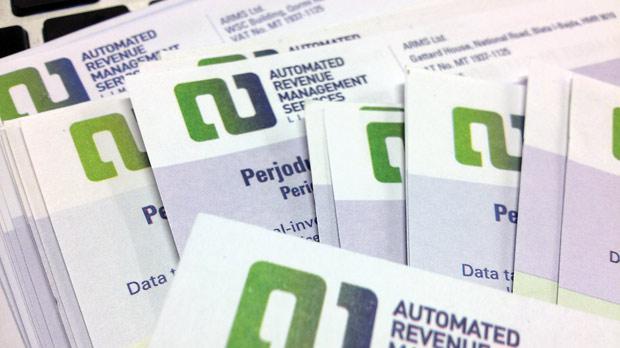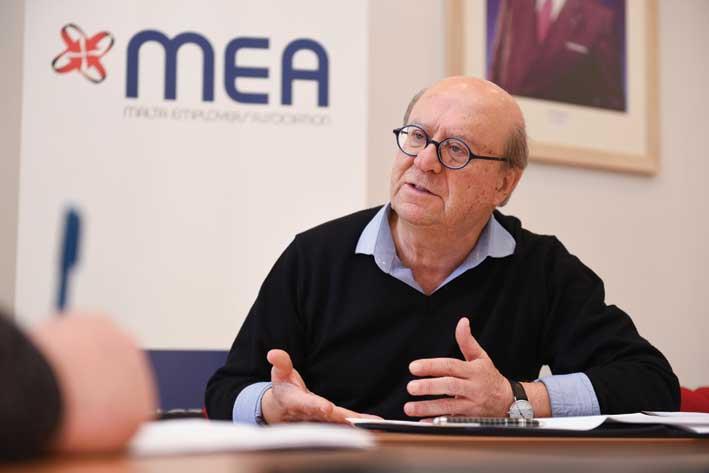Arthur Muscat will soon conclude his final term as President of the MEA, however he is concerned about the lack of a good work ethic in the younger generations.
“From a good work ethic based on hard work and an appreciation of duties and responsibilities, we seem to be moving towards a situation where there is a pronounced attitude of entitlement. This is partly due to rising standards of living, however such standards were built on hard work ethic, and if we lose that, the standards will fall. “
“The younger generation feels strongly entitled to, for example, the current standard of living, but they do not know how this was achieved. It was achieved through hard work. The moment a good work ethic falters, you are asking for trouble. We’ve seen countries that enjoyed high standards of living, lose it.”
He explained that employers are worried about this situation.
“There are employees who come into a job with high expectations, and if they do not materialise, the employee will move on.” He explained that the issue of a high-turnover rate is not necessarily a bad thing, and is due to the current high demand for employees, however high unrealisable expectations would be carried over from one job to the next.

“The issue of an entitlement attitude is, however, encouraged by politicians. Leadership seems to be going in the wrong direction. We are seeing political leaders practicing an appeasement of unrealistic demands and expectations, and nurture this entitlement issue.”
“As an example, we are currently debating the minimum wage issue. We have highlighted the danger that increasing the minimum wage can spiral all wages out of control as all employees would want an increase to re-establish relativity. So government is aware than a minimum wage increase will result on pressure for unions to ask for increases which will have nothing to do with productivity or poverty. Till today, we have not heard government deny this danger. Is it good that the general public ends up getting an increase, irrespective of where that money would come from and whether employers, especially smaller businesses, can afford it?”
What are the main challenges employers face in today’s day and age?
“One of the main challenges employers face is direct and indirect cost increases caused by legislation. These would be government induced increases in cost, and what normally bothers us is that we often do not receive enough advance notice. The longer a notice period one has of pending cost increases, the better one can plan for them.

A recent example, would be the possible increase of the minimum wage, or the possibility of introducing sick leave for parents when their children are sick. That is a cost, and costs affect employers differently. Smaller employers tend to find dealing with such costs difficult.
We are completely in the dark on this sick leave issue, obviously employers have their own idea of whether or how it could be introduced. Employers have taken a stand on this, saying that if sick leave for parents with sick children were to be introduced, then employers will ask for changes in the current rules on sick leave payments. One such change being that government should start reimbursing payments earlier than the third consecutive sick leave day taken by an employee.
Another challenge has to do with bureaucracy. Governments declare that they want to reduce bureaucracy. Does it happen in practice… sometimes it does, but more often than not, it does not.
Yet another issue surrounds the increase in social burdens being passed on to employers. Employers are willing to play their part and contribute, but one must consider the consequences if costly social burdens are passed on to employers indiscriminately,

You mentioned the minimum wage situation. Why is the MEA so firmly against a minimum wage rise and what would you propose instead?
The minimum wage discussion started off as a solution to the so called poverty problem. Employers have maintained that amending the minimum wage will not solve the poverty problem if, and as it exists. Our reasoning is simple. When we checked a labour force of 186,000, we established that at most, 3,500 would be on the minimum wage. So an intervention on the minimum wage for 3,500 employees, would result in pressure to give that increase to the other 182,000 workers, as unions have already declared that they would want to rebalance a disturbed relativity situation. So there would be employees who are not on the minimum wage now, but would end up on the minimum wage if it rises, and then would want a wage increase.
If it is a poverty issue, government should focus on specific measures to help people in poverty. We have submitted our proposals and are in discussions with government and the social partners regarding this. One of our proposals includes leaving the minimum wage untouched, while introducing regulations whereby a person, after one-year in employment, will receive a salary-increase if they are on the minimum wage. This will also protect the minimum wage level, which is when compared to EU countries, not low.

The Prime Minister declared that he will raise the minimum wage if no agreement is found…
Yes that is what he said, however he is also showing himself to be amenable to discussion, as he is not ruling out a solution that would be acceptable to government, employers and unions, and this is a good sign. Our emphasis is that social problems are government’s responsibility, and it is erroneous to shift social problems onto employers. Employers have a role to play, but it does not include being a social father figure.
The Caritas report had found that in certain situations, the minimum wage was not enough to sustain people… What’s your feel from the other unions, will they budge on your proposal or not?
Apart from the fact that we believe Caritas should have been more cautious in their suggestions, they did declare that raising the minimum wage was only one of so many other measures. In other words, on its own, it won’t solve the problem. What we are saying is that so many measures can be introduced by government, such as tweaking the children’s allowance, but the most important issue is to identify the persons who really need to benefit. There is a chance that many of the 3,500 employees on the minimum wage belong to households with two bread-winners, and would not fall within the poverty guidelines defined by Caritas. Even being single on the minimum wage would not mean being in the poverty bracket. The wage, on its own, is not the true measurement of one’s earnings, as there could be shift allowances, overtime etc. We want more research on this issue before coming to a decision to raise the minimum wage.
The increase in the minimum wage has an attractive political appeal, but if there is really a will to solve the poverty issue, then let’s find more serious solutions.

You recently made a statement that “A loss of 10 places in an international corruption index is not an indicator of good governance”, referring to an international report. How do these issues affect employers?
What we maintained is that this perception which has been recorded by this international agency may hint that there isn’t good governance. A perception of the lack of good governance instils a sense of insecurity and uncertainty in terms of business transactions. There are opportunities which government creates for business, and they need to be made available to all operators in an even and impartial way. By lack of transparency, we mean that if one opaquely administers policy in this way, it would deter many businesses from participating. Obviously, the lack of good governance would affect efficiency and standards, since the best operators do not participate, one would not achieve the best result.
Good governance means consistently administering in a good and just way, but it also implies the quality and validity of policies. We are not saying that government falls flat on all issues, and there are many instances where government pushes the correct policies.
As an example, lately, the Education Ministry went into the aspect of offering work to refugees within a structured arrangement, and that is good, it makes sense.
You called it a perception of good governance issues, do you believe that there are good governance issues?
What we are saying is that there is a perception. A perception means that, generally, people are seeing that things are not 100% right. A perception does not originate from nowhere. You perceive that there is a lack of transparency, and you therefore perceive there is corruption. Perception is the start and we hope it does not end up being 100% true. If it does then things are wrong. Employers are in favour of transparency as that is the evidence that things are being done correctly.

The MEA has long called for a further decrease in energy tariffs but this does not seem to be happening anytime soon, what’s your reaction?
Energy is an important cost factor for industry. It should be any government’s policy to guarantee the optimum charges for businesses. We are in favour of government purchasing energy from the most economic source. That is the best way to guarantee optimum energy prices. As you optimise the price to be the lowest one can obtain it, we believe that the effect should be passed on to industry. If you operate that way, one is helping the economy develop.
As an example, contrary to many other EU countries, rates charged to industry and commerce are higher than household energy charges. This does not make sense to us, industry and commerce should not be penalised in that way.
There have been allegations that government would not go for the cheapest energy source through their agreements. What’s your opinion?
We want government to purchase energy from the optimum source with the lowest price available.
The MEA has had a number of issues regarding the Human Rights and the Equality Commission Act 2015, and the Equality Act 2015. The MEA said that they will effectively place an employer as a guilty party before being given the opportunity to prove his/her innocence of alleged contraventions, please explain further.

The MEA has a problem with the proposed Acts. Our contention is, that as far as equality and discrimination is concerned, we are well-served by EU standard regulations. The situation is that these new proposals will put employers in an unfair position. Currently, issues of equality and discrimination are reported to the Commissioner. If the Commissioner decides there is a case, it is referred to the police who take it to the Courts. The proposals will instead make the Commissioner judge and jury.
The Commissioner is manifestly unable to be impartial, because the law obliges him to promote equality and non-discrimination. If one has a role to promote, how can one impartially judge whoever allegedly contravenes one’s pet causes? You can’t. Another worrying aspect surrounds the issue of being considered guilty, and having to prove your innocence. This situation currently exists in cases of sexual harassment, but one is judged in the comfort of a properly constituted court of law with all the professional guarantees for a due process of judgement. Through the proposed law, employers will be considered a priori guilty, facing a legally illiterate commissioner who would not be able to be impartial. The MEA is saying that Malta has courts of law, and that employers should be judged in such courts of law.
The current proposal is in breach of the constitution. Commissions should only handle minimal misdemeanours, like traffic offenses. But when one speaks of more serious issues, then all the guarantees which apply to normal citizens should also apply to employers.